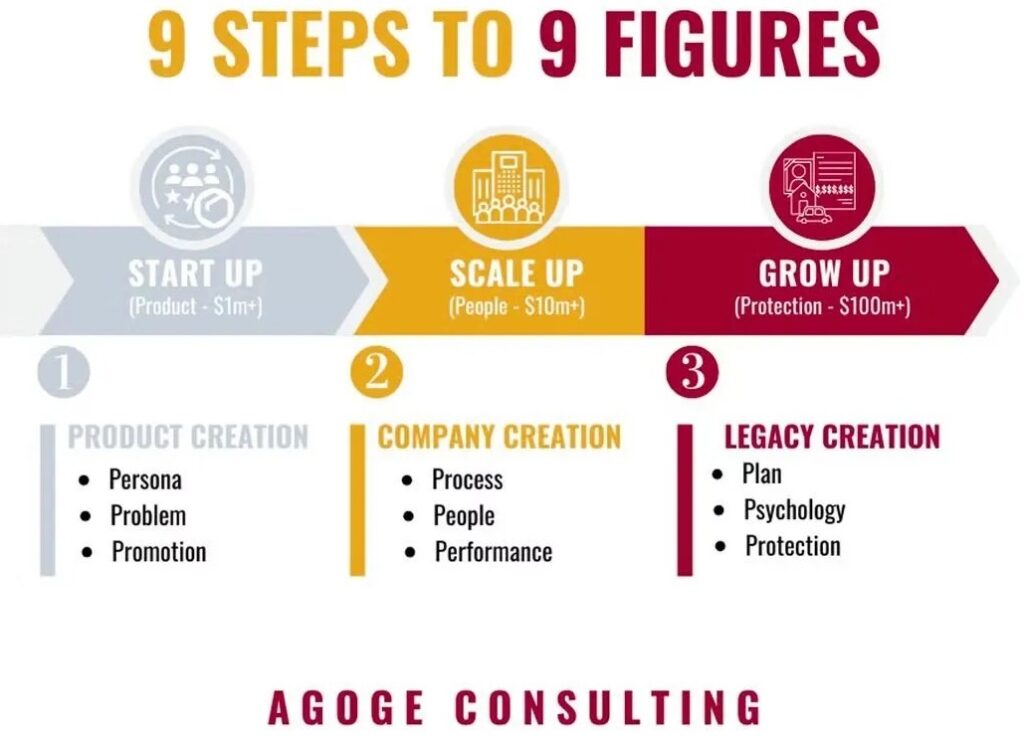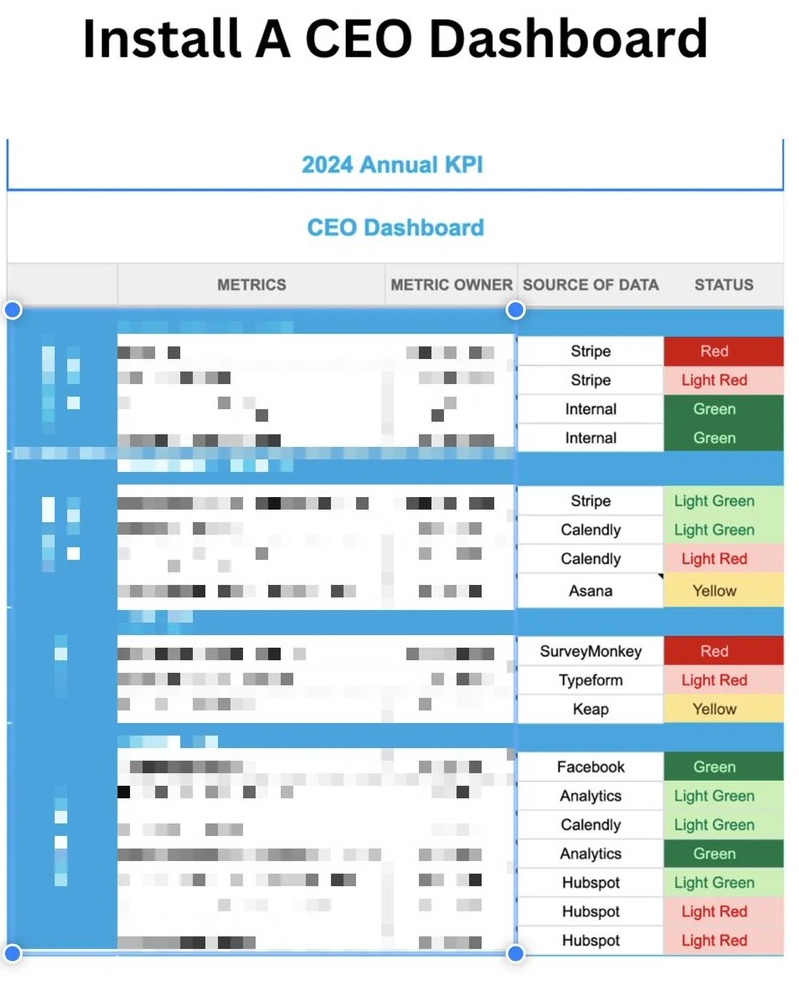March 20, 2025
I recently sat down with Greg Isenberg, host of The Startup Ideas podcast, to dive deep into everything related to scaling your business.
During our conversation, we explored my framework for scaling businesses from seven to nine figures, drawing from my experience of taking AppSumo from $3M to $84M in revenue.
The insights I’m about to share focus on the critical elements that most founders overlook:
- Customer retention
- Strategic hiring
- Proper incentive structures
We’ll also discuss the crucial mindset shift required to transition from founder to CEO.
Framework Overview
Most founders never break $10m. But not because they aren’t smart or hardworking.
They just don’t know how to scale.
I took AppSumo from $3m to $84m in six years. Bootstrapped.
Here’s the exact framework I used to do it.
The “9 Steps to 9 Figures” Framework
Scaling happens in three phases:
- Startup ($0-$1M): Find product-market fit.
- Scale-up ($1M-$100M): Build a machine.
- Grow-up ($100M+): Protect the legacy.
Each phase requires a different skill set, mindset, and strategy.

Triple, Triple, Double, Double
Triple your business three years in a row.
Double your business twice in a row.
It looks simple, but it is not.
Here is the roadmap:

Growth Fundamentals
Before diving into thinking you can scale as of tomorrow, you need to master a few fundamentals to set the foundation for sustainable growth.
Find Product-Market Fit first
You don’t have product-market fit until it feels like you’re wearing a meat suit in a dog park.
If you’re still convincing customers to buy, you aren’t there yet.
When you can’t keep up with demand, now you’re scaling.
Retention before growth
Building a business without fixing churn is like building a skyscraper on sand.
Every 3% increase in net revenue retention DOUBLES your company’s valuation.
Before you scale, fix retention. Otherwise, you’re filling a leaky bucket.
The 80/20 Growth Rule
- 80% of your resources on what’s already working.
- 20% on new experiments.
At AppSumo, one small test—switching from credits to cash payments for referrals—became an 8-figure revenue channel.
Pro tip: Test small. Scale what works.
Operational Excellence
It’s time to focus on the operational systems that will enable your business to scale efficiently.
If you’re stuck, your problem is either:
- Sales – Not enough leads?
You don’t have a marketing problem, you have a product problem.
- Delivery – Selling more than you can fulfill?
You’re scaling chaos, not a business.
Fix these first.
Hire to scale revenue, not to discover it
Most founders hire too soon.
Your job is to find the gold vein. Your team’s job is to mine it.
Hiring too early = You burn cash.
Hiring too late = You burn out.
Hire only when scaling becomes the bottleneck.
The Shield vs. Sword Framework for decision-making
Rate every decision 1-5 on:
- Impact (Sword) – How big is the upside?
- Effort (Shield) – How much work is it?
Only pursue 8+/10 ideas.
If it’s not a clear win, it’s a distraction.
Team Building & Leadership
Your ability to scale depends heavily on the team you build and how you lead them.
Build an executive team that replaces you
Your business only has two core functions:
- Sales (CRO) – Gets Customers
- Delivery (COO) – Keeps Customers
Pro tip: Hire first in your zone of genius. Why?
Because you’ll know what excellence looks like.
A Matter of Time and Focus
The founder is the hardest worker. The CEO is the laziest.
If your calendar is full, you’re still a founder.
A CEO’s job is to think 3–5 quarters ahead while the team executes.
If you’re in meetings all day, you aren’t running the company.
Strategic Growth
With your fundamentals covered and your team in place, it’s time to focus on strategic decisions that will accelerate your growth.
Hyper-niche and dominate
At AppSumo, 80% of our top customers were marketing agencies. So we doubled down on them.
- LTV tripled.
- CAC dropped.
- Revenue exploded.
Most founders try to sell to everyone.
The winners go deep, not wide.
Traditional equity doesn’t motivate employees
Instead, let them choose their comp split:
- Base salary + bonus
- Mix of cash + equity
Now they have skin in the game—and actually value the equity they receive.
Your business is a game of compounding loops
Most founders chase one-time wins. The best companies build systems that compound.
Every process, hire, and test should make the business better over time.
If it doesn’t, rethink it.
If you don’t know your numbers, you’re flying blind
Your team needs a scoreboard to win.
LeBron doesn’t play basketball with the scoreboard off.
If you don’t track:
- LTV (Lifetime Value)
- CAC (Customer Acquisition Cost)
- Churn
- Net Revenue Retention
—you’re guessing.

Conclusion
Scaling isn’t about working harder, it is about working on the right things.
Want the full breakdown?
Check out the full interview below where Greg Isenberg and I take a deep dive into growth, scaling, and avoiding costly mistakes below.
Watch the full interview on Greg Isenberg’s YouTube channel here.
The end. Thanks for reading.

